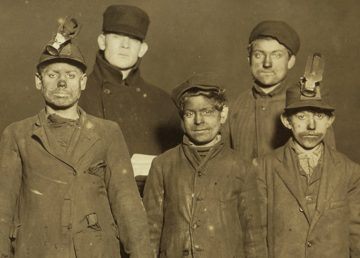Sanjukta Paul in Aeon:
 There does economic power come from? Does it exist independently of the law? It seems obvious, even undeniable, that the answer is no. Law creates, defines and enforces property rights. Law enforces private contracts. It charters corporations and shields investors from liability. Law declares illegal certain contracts of economic cooperation between separate individuals – which it calls ‘price-fixing’ – but declares economically equivalent activity legal when it takes place within a business firm or is controlled by one.
There does economic power come from? Does it exist independently of the law? It seems obvious, even undeniable, that the answer is no. Law creates, defines and enforces property rights. Law enforces private contracts. It charters corporations and shields investors from liability. Law declares illegal certain contracts of economic cooperation between separate individuals – which it calls ‘price-fixing’ – but declares economically equivalent activity legal when it takes place within a business firm or is controlled by one.
Each one of these is a choice made by the law, on behalf of the public as a whole. Each of them creates or maintains someone’s economic power, and often undermines someone else’s. Each also plays a role in maintaining a particular distribution of economic power across society. Yet generations of lawyers and judges educated at law schools in the United States have been taught to ignore this essential role of law in creating and sustaining economic power. Instead, we are taught that the social process of economic competition results in certain outcomes that are ‘efficient’ – and that anything the law does to alter those outcomes is its only intervention.
These peculiar presumptions flow from the enormously powerful and influential ‘law and economics’ movement that dominates thinking in most areas of US law considered to be within the ‘economic’ sphere.
More here.
